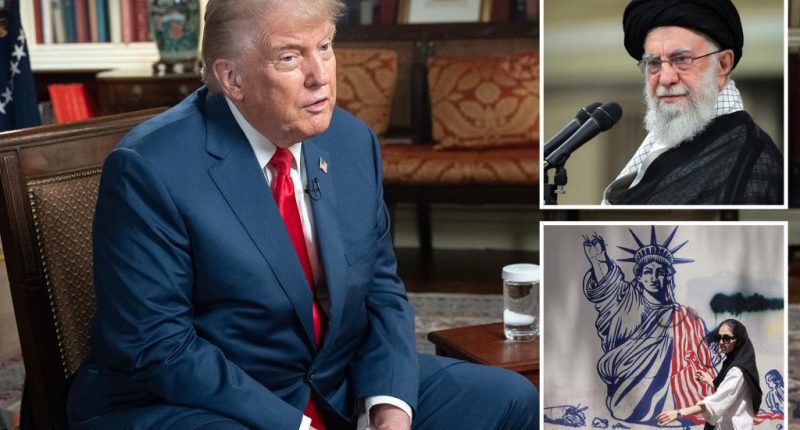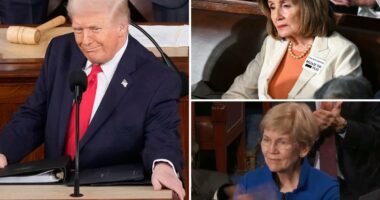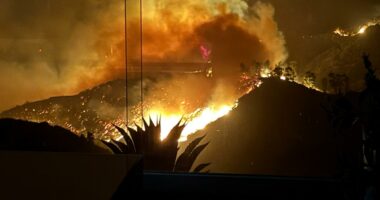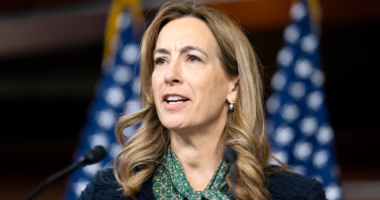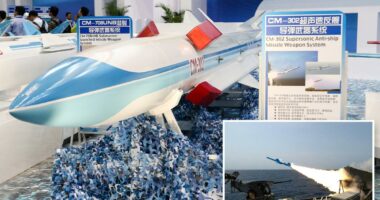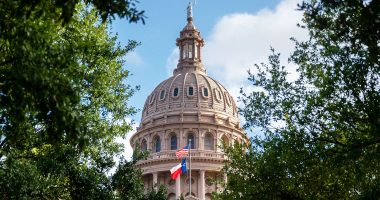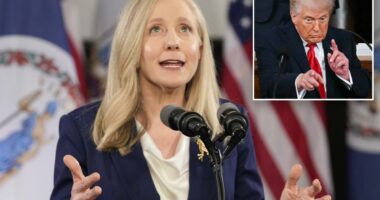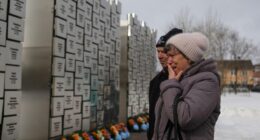Share this @internewscast.com

President Trump is becoming less optimistic that Iran will consent to halt all uranium enrichment as part of a new nuclear agreement with the United States. However, he remains firm in his commitment to prevent Tehran from acquiring a nuclear weapon, he shared with The Post’s Miranda Devine during the premiere of her podcast “Pod Force One,” which will be available on Wednesday.
When asked by Devine on Monday about the possibility of convincing Iran to terminate its nuclear program, Trump, 78, responded, “I’m not sure. I used to think it was possible, but now I am feeling increasingly doubtful about it.”
Every week, Post columnist Miranda Devine engages in exclusive and sincere talks with prominent change-makers in Washington. Subscribe here!
“They seem to be delaying, and I think that’s a shame, but I’m less confident now than I would have been a couple of months ago. Something happened to them, but I am much less confident of a deal being made.”
“What happens then?” asked Devine.
“Well, if they don’t make a deal, they’re not going to have a nuclear weapon,” Trump answered. “If they do make a deal, they’re not going have a nuclear weapon, too, you know? But they’re not going a have a new nuclear weapon, so it’s not going to matter from that standpoint.
“But it would be nicer to do it without warfare, without people dying, it’s so much nicer to do it. But I don’t think I see the same level of enthusiasm for them to make a deal. I think they would make a mistake, but we’ll see. I guess time will tell.”
Trump’s special Middle East envoy, Steve Witkoff, has been engaging in indirect talks with Tehran for months, with little progress.
Witkoff had previously floated the idea of allowing Iran to continue enriching uranium, but only for civilian purposes, an offer similar to former President Barack Obama’s 2015 nuclear deal, from which Trump withdrew the US three years later.
However, the State Department and White House have been adamant that Iran should not be allowed to enrich any whatsoever.
Asked by Devine whether he thought China influenced Tehran’s decision to resist the US entreaties, Trump said he did not believe that was the case.
“I just think maybe they don’t want to make a deal. What can I say?” he said. “And maybe they do. So what does that mean? There’s nothing final.”
On Tuesday, the Europe-based National Council of Resistance of Iran (NCRI), an opposition group, released an estimate that Tehran has spent at least $2 trillion on their nuclear development program over the past three decades.
If true, the expenditure outpaces the regime’s total oil revenue since 1979, which the NCRI estimates to be approximately $1.5 trillion.
The NCRI has said that much of this spending has been directed to the recently discovered “Kavir Plan,” which they believe to be the Iranian regime’s new covert nuclear weapons development scheme.
“Tehran’s dash to obtain nuclear weapons has intensified,” warned the NCRI in a June 10 intelligence disclosure.
Over the past several months, the NCRI has revealed four locations they believe to be associated with the Kavir Plan — all four of which are located in or near the north-central Semnan Province, which the regime has designated as a military zone.
Kendall White contributed to this story.
